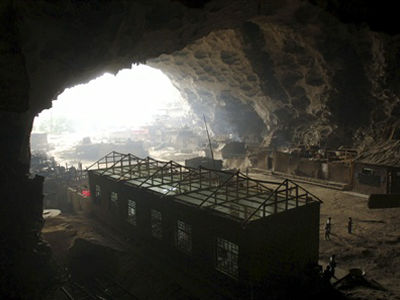Research results show that in a class with poor grades, the grades of other students will drop

It is known that students' academic performance depends on various factors, such as
Peer effects of low-ability students in the classroom: evidence from China's middle schools | SpringerLink
https://link.springer.com/article/10.1007/s00148-020-00780-8
Our study in China found struggling students can bring down the rest of the class
https://theconversation.com/our-study-in-china-found-struggling-students-can-bring-down-the-rest-of-the-class-149917

“Social interaction at school is considered very important for students' learning. The influence of peers among students is an important factor for educators, governments and parents to consider,” said the research team. Commented. Therefore, we used data from the China Education Follow-up Survey conducted from 2013 to 2014 to investigate the impact of social interaction at school on performance.
The China Education Follow-up Survey is a nationwide survey of junior high school students in China that explains the relationship between factors such as family, school systems, communities, and social structures of schools and classrooms and the educational outcomes of students. It was intended for that. In the survey, classes in the first and third years of junior high school were randomly selected from 112 schools nationwide, and a total of 19,487 students answered a questionnaire asking for learning, grades, and other information.
The survey included 13% of 'students who had repeated grades in the upper grades of elementary school,' and the research team estimated that these students had 'poor grades.' In fact, as a result of investigating the test results of Japanese, math, and English in junior high school, it seems that the test results of repeaters were worse in all subjects than those who did not.

Next, the research team randomly assigned students who had repeated grades to the first year of junior high school, and at the junior high school that adopted a system that educates until the third year of junior high school, whether there are students who have repeated grades and other students I investigated whether it was related to my grades.
In this survey, we targeted junior high schools, which randomly assigned students who repeated grades, to indicate that classmates who take classes in the same classroom may be arbitrarily selected by teachers, schools, and parents. It was to eliminate it. In junior high schools with randomly assigned students, there is a bias in the number of students who have repeated grades in each class, but other factors are mostly shared.
When the research team compared the academic performance of students who did not repeat a grade in the 'class with many students who had repeated grades' and 'class with few students who had repeated grades' in the same junior high school, 'Junior high school 1 In the year class, the more students who have repeated a grade, the worse the grades of other students. ' This effect was most noticeable in Japanese grades, and mathematics was the least affected.
In addition, the negative impact on students who did not repeat a year was stronger in the class with a large number of students, and the influence of students who repeated a year was particularly large in students with poor grades. On the other hand, students with good grades were not affected by repeaters, the research team said.

The content of the education did not change significantly depending on the students who repeated the year, but the research team found that the students who repeated the year influenced the 'friendship' and 'classroom environment', resulting in other students. I think my grades have dropped.
First, in classes with proffesional students, other students were more likely to make friends with proffesional students and less likely to be friends with non-proffesional students. Researchers say this may have affected students' learning. The research team also pointed out that the class environment deteriorated due to the presence of proffesional students. In classes with many repeaters, the percentage of other students participating in school activities on a regular basis decreased, and the percentage of students who answered that their classmates were friendly decreased.
On the other hand, in the third year of junior high school, there was no evidence that the presence or absence of repeaters worsened the grades of other students. Since the class was not changed until the third year of junior high school in the scope of this survey, the adverse effects of repeated students are short-term, and the adverse effects may disappear over a long period of time.
The research team pointed out that 'pressure on high school entrance exams in China' may be related to the reason why the adverse effects of repeated students disappear in the third year of junior high school. The research team said that the learning environment may have improved as a result of the increase in hard-working students ahead of the high school entrance exam.

Related Posts:







